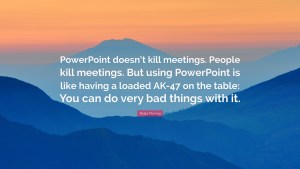
Becoming a better public speaker is a skill that can be developed and refined over time. It takes work but the effort required is worth it in a myriad of ways. Improving your public speaking skills can make you a better communicator, boost your confidence, and help you connect with others. Here are some tips and strategies to help you become a better public speaker and communicator.
• Practice: The most crucial step in improving your public speaking skills is to practice regularly. Rehearse your presentation multiple times to become more comfortable with the material and your delivery.
• Know your audience: Understand who you will be speaking to and tailor your message to their needs and interests. This will help you connect with your audience on a more personal level.
• Organize your content: Structure your speech or presentation logically, with a clear introduction, body, and conclusion. Use transitions to guide your audience through your content.
• Start with a strong opening: Begin your speech with an attention-grabbing introduction. You can use a quote, a story, a surprising fact, or a thought-provoking question to engage your audience from the start.
• Use visual aids: Visual aids, such as slides, can help clarify complex ideas and make your presentation more engaging. Just be sure not to overload your slides with text and avoid reading them word for word. Your slides support your presentation, they are not your presentation. Never turn your back on your audience to read your slides cause when you turn back around they may be gone.
• Practice good body language: Pay attention to your posture, gestures, and facial expressions. Maintain eye contact with your audience, and use your body language to convey confidence and enthusiasm.
• Control your voice: Speak clearly and at a moderate pace. Vary your tone, pitch, and volume to keep your audience’s attention. Avoid speaking too fast or too softly.
• Eliminate filler words: Minimize the use of “um,” “uh,” “like,” and other filler words. Practice pausing instead of using filler words, as this can make your speech sound more confident and polished.
• Know your material: Become an expert on the topic you are speaking about. This will boost your confidence and allow you to handle questions and challenges more effectively. Here’s the reality of public speaking. If you know what you’re talking about you have no need to be nervous. If you don’t know what you’re talking about you have no need to be speaking.
• Engage the audience: Encourage interaction by asking questions, sharing anecdotes, and involving the audience in your presentation. This can make your presentation more interactive and relatable.
• Seek feedback: Record your speeches or presentations and review them to identify areas for improvement. You can also ask for feedback from trusted friends, mentors, or colleagues.
• Learn from others: Watch and learn from skilled public speakers. Analyze their techniques and adapt them to your style.
• Keep learning: Public speaking is a lifelong learning process. Stay updated on effective communication strategies and continually work on enhancing your skills.
Remember that becoming a better public speaker takes time and practice. Don’t get discouraged by occasional setbacks, and keep working on your skills to become a more confident and effective communicator.
 There really isn’t a problem with PowerPoint. The problem is with how so many people use it.
There really isn’t a problem with PowerPoint. The problem is with how so many people use it.